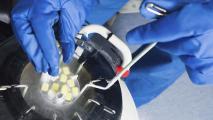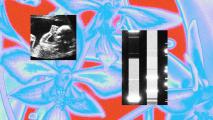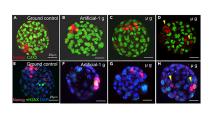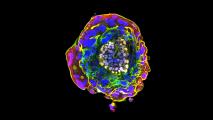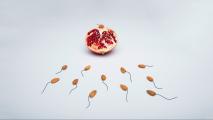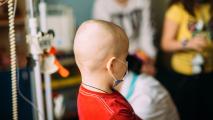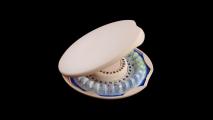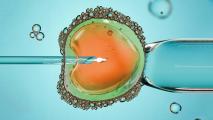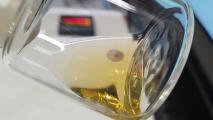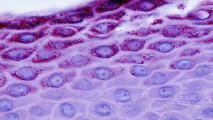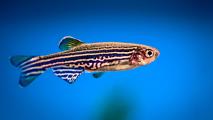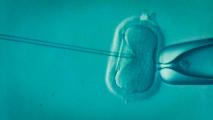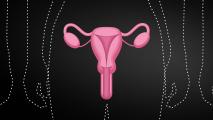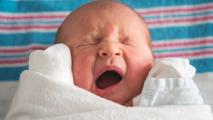Field: Fertility
The future of fertility, from artificial wombs to AI-assisted IVF
A look back at the history of infertility treatments and ahead to the tech that could change everything we thought we knew about reproduction.
The overlooked virtues of a crowded world
In a world of rising cynicism, a celebration of our capacity to create, adapt, and thrive.
Startup can now screen IVF embryos for 1000+ diseases
Startup Orchid now offers whole genome sequencing for embryos used during IVF — but not everyone is convinced it’s worth the cost.
Mouse embryos grown in space for the first time
A mouse experiment on the International Space Station suggests humans might one day be able to reproduce in space.
Model human embryo, created from stem cells, survives past two weeks
A model human embryo capable of developing past day 14 could revolutionize our understanding of human development.
Scientists are growing animals in artificial wombs. Humans might be next.
Artificial wombs promise to give people a way to have biological children without putting their own health at risk.
First healthy mice with two dads — and no moms — born in Japan
For the first time, scientists have created healthy, fertile mouse pups using only the DNA of two adult males.
Male birth control options are in development, but a number of barriers still stand in the way
A survey of over 9,000 men in nine countries found that over 55% would be willing to use a new method of male birth control.
Male birth control pill to enter human trials in 2022
Clinical trials of a male birth control pill that was 99% effective at preventing pregnancy in mice are expected to launch in 2022.
Can testicular tissue restore childhood cancer survivors’ fertility?
A procedure that used frozen testicular tissue to restore fertility in animals could soon do the same for childhood cancer survivors.
An at-home test to find your best birth control option
Seattle-based startup adyn is developing an at-home testing kit to help women find their best birth control method.
"Defective" embryos can actually self-correct in the womb
PGT-A, a genetic test used to screen embryos for aneuploidy prior to in vitro fertilization, appears to be excluding many viable options.
Sperm may play a bigger role in pregnancy than we thought
Sperm appear to play a bigger role in pregnancy than previously believed, not only fertilizing the egg, but also “persuading” the female body to accept it.
New blood test could predict the onset of labor
Stanford University researchers have identified blood-based biomarkers that can be used to predict the onset of labor in pregnant women.
Researchers have grown a mouse embryo in a bottle
Researchers have grown a mouse embryo outside the uterus for longer than ever before, opening up the door to learning more about how mammals grow.
Can a lab-grown uterus treat infertility?
A bioengineered uterus could open up treatment options for women facing infertility.
New vaginal ring reduces risk of HIV and pregnancy
A vaginal ring that serves double duty as both long-term contraception and convenient HIV prevention showed promise in a small study.
Babies of the future could be made from skin cells
A potential fertility treatment involves taking skin cells and reverse engineering them into eggs and sperm.
How GMO zebrafish could inspire new infertility treatments
By genetically modifying zebrafish, researchers have discovered a sex hormone that could lead to future infertility treatments for humans.
Cancer survivor gives birth thanks to a new fertility procedure
A French cancer survivor is the first person to give birth via a fertility treatment that involves freezing and thawing eggs that underwent in vitro maturation.
Series|
Future of Fertility
Uterus transplants: A step closer to overcoming infertility
About 1 in 500 women have a condition that prevents pregnancy called absolute uterine factor infertility, but recent developments show promise that a uterus transplant surgery could be the solution.
Breaking the taboo of male infertility
Male infertility contributes to up to half of infertility cases. Why is it so hard to talk about?
Why don’t women’s health companies get adequate funding?
Celmatix Founder and CEO Piraye Beim gives an inside look into the battle to secure funding for women's health.
For childhood cancer survivors, adult fertility isn’t a given
Experimental procedures offer beta solutions for girls, and more time to figure it out for boys.
A molecular biologist discusses the morality of gene editing
Molecular biologist Daisy Robinton speaks out on our moral imperative to solve some of humanity's greatest health threats.
Series|
Future of Fertility
IVG: making babies from skin cells
The designer babies of the future are closer than we think. With a new process called IVG, a person could essentially choose their baby’s traits, and same-sex couples could make a biological family.
Robotic birth simulator saves lives in the delivery room
Meet the group of medical professionals that’s delivering babies from robots to prepare for real-life emergencies in the hospital room.
The cause (and possible cure) for most infertility
Fertility medicine may be on the edge of a breakthrough.
Babies sometimes trigger preterm labor to escape infections
A new discovery upends what we thought we knew about premature births and could point the way to entirely new...
